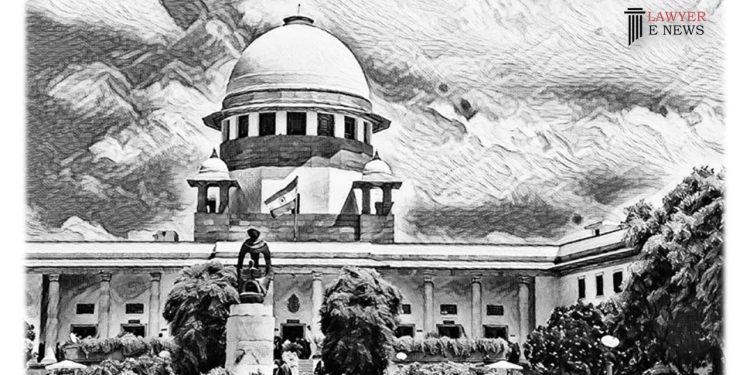-
by Admin
15 February 2026 2:36 AM



In a significant ruling, the Supreme Court has delivered a landmark judgment clarifying the liability of stamp duty for a sale deed conveying immovable property, including plant and machinery. The judgment provides crucial insights into the interpretation of relevant sections of the Indian Stamp Act, 1899, the Transfer of Property Act, and other associated laws.
The case pertained to a sale deed executed by the Official Liquidator, conveying various assets, including land, building, plant and machinery, and other current assets. The dispute centered around the determination of stamp duty liability for the sale deed, particularly with respect to the plant and machinery.
The Court delved into the interpretation of Sections 3, 4, and 5 of the Indian Stamp Act, 1899, and examined precedents set by previous judgments, including the case of Member, Board of Revenue. It observed that if separate instruments had been executed for conveying distinct matters such as land, building, and plant machinery, stamp duty would have been payable on each instrument. However, if distinct matters were dealt with in a single instrument, the liability to pay stamp duty would be determined under Section 5 of the Act.
The Court further analyzed the recitals and clauses of the sale deed, emphasizing the intention of the parties and the nature of the transaction. It held that the sale deed conveyed not only the land but also the rights, easements, interests, and plant machinery attached to the earth. The value of the plant and machinery, meeting the criteria of immovable property, was found to be an integral part of the conveyed assets.
Regarding stamp duty liability, the Court upheld the view that the first respondent, who was the nominee of the second respondent and the actual vendee under the sale deed, was liable to pay the stamp duty. The absence of the second respondent did not affect the liability of the first respondent as the primary party responsible for stamp duty payment.
However, the Court recognized the need for further examination of the plant and machinery to ascertain its status as immovable property. It directed the authorities to determine whether the specific plant and machinery met the criteria of immovable property and, consequently, should be subject to stamp duty.
The Court also highlighted the powers conferred upon the authorities under the Indian Stamp Act and the Andhra Pradesh Amending Act (8 of 1988) to inspect properties, conduct local inquiries, and examine records to ensure compliance with stamp duty provisions. It emphasized the need for a thorough evaluation of undervalued instruments and the associated procedures outlined in Section 47A of the Act.
Consequently, the Court allowed the appeal against the judgment of the Division Bench and restored the judgment of the learned Single Judge, with modifications. The second appellant (District Registrar) was tasked with determining the value of the plant and machinery as per its status as immovable property. Additionally, the second appellant was directed to examine whether the first respondent qualified for the exemption of stamp duty based on the applicable laws.
In conclusion, this significant judgment clarifies the stamp duty liability for sale deeds involving immovable property and plant machinery. It emphasizes the need for a comprehensive assessment of assets and their classification as immovable property to determine the appropriate stamp duty payable.
THE SUB REGISTRAR, AMUDALAVALASA & ANR. VS M/S DANKUNI STEELS LTD. & ORS.
